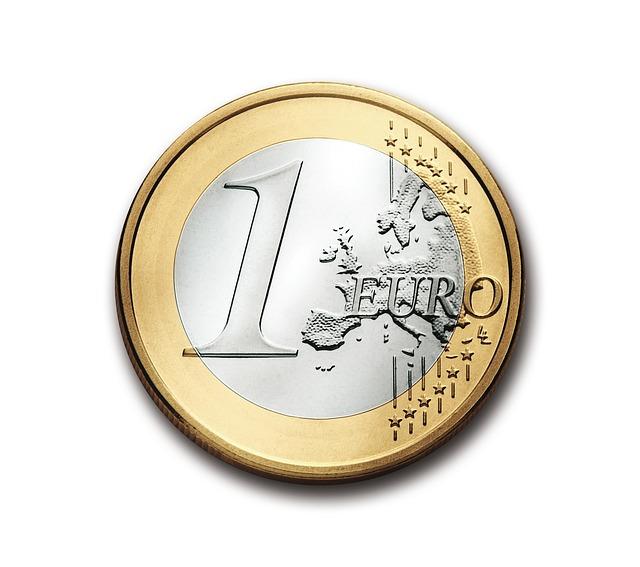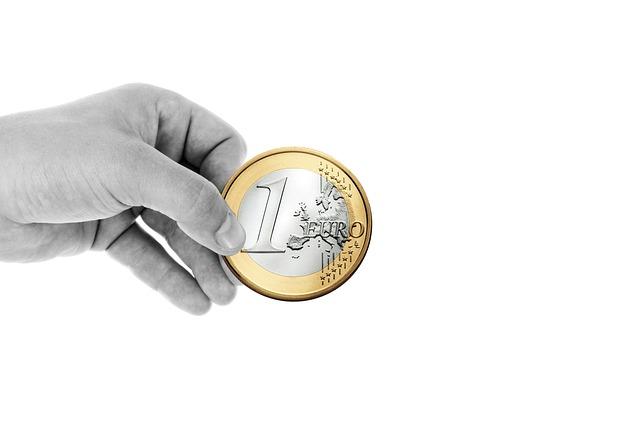Exploring Bulgarias Hesitation on Euro Adoption
Bulgaria’s path in the direction of euro adoption has been something however easy, reflecting a posh interaction of political, financial, and public sentiments. As one of many European union’s most up-to-date entrants, the nation initially considered the euro as a gateway to deeper financial integration and stability. Nevertheless, lingering issues about inflation, sovereignty, and native financial impacts have stifled the fervor for swift transition. A number of components contribute to Bulgaria’s hesitation:
Public Sentiment: Surveys point out that a significant slice of the inhabitants stays skeptical about the advantages of adopting the euro.Financial Concerns: Issues over potential inflation and loss of financial coverage management weigh closely on public opinion.Political Uncertainty: Frequent adjustments in authorities have hindered constant dialog and strategic planning relating to euro adoption.
Moreover, Bulgaria’s aspirations for eurozone membership intersect with bigger EU dynamics, as member states emphasize strict compliance with fiscal standards and financial stability. The federal government has outlined a roadmap for becoming a member of the Eurozone by 2024, but skeptics argue that this timeline could not be possible with out addressing underlying financial vulnerabilities. The intricate particulars of those negotiations are essential:
CriteriaStatusInflation RateAbove Eurozone averageBudget DeficitNeeds enhancementDebt to GDP ratioStable however excessive

The Financial Implications of Lacking the Euro Transition
The delay in Bulgaria’s transition to the euro carries profound financial penalties that might ripple via the nation’s monetary panorama. Because the nation stays outdoors the Eurozone, it dangers falling behind its European counterparts when it comes to funding, commerce attractiveness, and general financial integration. The potential loss of advantages contains:
Elevated Commerce Prices: As commerce with Eurozone nations turns into pricier as a consequence of forex conversion charges, Bulgarian companies could discover themselves at a aggressive drawback.Funding Deterrence: Overseas traders usually want markets that use steady currencies. A extended absence from the euro might discourage inbound capital.Inflationary Strain: The lack of euro adoption could result in excessive inflation charges, as fluctuating change charges create financial instability.
Moreover, the socioeconomic divide inside Bulgaria might widen absent euro adoption, particularly among the many poorer areas that rely closely on remittances from overseas. Worldwide economists predict that integrating into the Eurozone might facilitate financial development by offering stability and fostering fiscal self-discipline. An evaluation of projected GDP development charges signifies a substantial potential uplift for Bulgaria upon introduction of the euro:
YearProjected GDP Development (%)funding Inflows (Million €)20243.5percent120020254.0percent150020264.5percent1800
These figures underscore the urgency of addressing the looming uncertainties surrounding Bulgaria’s euro transition. With out the euro, the nation could discover itself more and more remoted economically, struggling to compete on a unified European stage.

Public Sentiment and Political Resistance to Euro Membership
The debate surrounding Bulgaria’s potential euro membership is deeply influenced by public sentiment, which has been formed by a mixture of financial anxieties and historic skepticism. Many Bulgarians really feel a robust attachment to their nationwide forex, the lev, and concern shedding financial sovereignty.This sentiment is compounded by issues over potential value will increase and the perceived lack of management over financial coverage. As discussions about adopting the euro have emerged, numerous surveys reveal that a good portion of the inhabitants stays unconvinced in regards to the advantages, resulting in a notable resistance in opposition to euro adoption. Key components influencing public opinion embody:
Financial Stability – Many voters fear in regards to the implications of becoming a member of the Eurozone throughout turbulent financial instances.Inflation Fears – there’s a widespread perception that introducing the euro would exacerbate inflation, particularly in a rustic the place costs have traditionally fluctuated.Nationwide Id – The lev symbolizes financial independence, making some Bulgarians resistant to the thought of relinquishing their forex.
Political leaders have additionally confronted a backlash from constituents, making it tough to navigate the euro membership dialogue. Many have opted for a cautious method, emphasizing the necessity for complete financial analyses and the prioritization of native pursuits over broader EU methods. Institutional gamers in Bulgaria seem divided; some argue that euro membership might foster financial development and integration, whereas others align with public sentiment, prioritizing skepticism. This divide is mirrored in a latest evaluation of parliamentary votes on euro accession, demonstrating a clear sample of political resistance:
Political PartySupport for Euro MembershipOpposition StanceParty A70percent30percentParty B40percent60percentParty C10percent90%

Comparative Evaluation: Bulgarias Euro Debate vs. Different EU Nations
As Bulgaria continues to deliberate its potential adoption of the euro, an intriguing comparative evaluation emerges when positioned alongside different EU nations which have navigated comparable crossroads. International locations like Croatia, which just lately embraced the euro, showcased a decisive public discourse and strategic positioning, grounded in intensive civic engagement and financial analysis. In distinction, Bulgaria’s euro debate lacks the vigor and transparency seen in these nations, elevating questions in regards to the socio-political dynamics at play. Notably,the public’s lack of consciousness and political management’s hesitation in proactively discussing the ramifications of euro adoption stand out as important obstacles to a sturdy nationwide dialogue.
When inspecting the broader EU panorama, it turns into evident that nations like Lithuania and Estonia underwent rigorous discussions over their euro adoption timelines, marked by a mix of financial analyses and public opinion surveys.This enabled them to current a extra cohesive argument for becoming a member of the Eurozone. Bulgaria’s case, nonetheless, reveals some stark contrasts, together with:
Restricted Public Engagement: A regarding absence of complete campaigns to coach residents about potential advantages and downsides.Political Ambivalence: Some political factions stay divided, missing a unified imaginative and prescient for financial integration with the euro.Financial Readiness Issues: Questions relating to Bulgaria’s readiness to transition to the euro are usually left unaddressed.CountryEuro Adoption YearPublic Engagement LevelCroatia2023HighEstonia2011ModerateLithuania2015HighBulgariaPendingLow

Coverage Suggestions for a Productive Euro Dialogue
To foster a extra productive dialogue surrounding Bulgaria’s entry into the Eurozone,key stakeholders should prioritize transparency and inclusivity in discussions. Open boards that invite numerous views, together with these from civil society, financial specialists, and grassroots organizations, can lead to extra complete understanding and acceptance of the Euro transition. Moreover, the federal government ought to implement public consciousness campaigns highlighting the advantages and potential challenges of Euro adoption. These initiatives can positively assist demystify the implications of the Euro, creating an knowledgeable citizenry that engages critically with the subject.
Moreover, to make sure the Eurozone membership aligns economically and socially with Bulgaria’s wants, the next coverage suggestions must be thought of:
Conduct thorough impression assessments evaluating the present financial coverage with potential Euro adoption situations.Set up a job pressure aimed at addressing particular issues raised by numerous social teams relating to forex transition.Create mechanisms to monitor and consider the financial efficiency post-adoption to make sure accountability and responsiveness.Facilitate inter-governmental cooperation to share finest practices with current Eurozone members who confronted comparable transitions.AspectCurrent SituationPost-Euro adoption VisionCurrency StabilityFluctuating LevStable EuroInflation ControlModerate management effortsStronger ECB governancePublic SentimentMixed reactionsPositive engagement via training

The Position of Civil Society in Shaping Financial Futures
The dynamics of civil society play a vital function in influencing financial insurance policies and public opinion inside Bulgaria, notably across the contentious difficulty of adopting the euro. Residents’ organizations, advocacy teams, and community-based initiatives can serve as platforms for knowledgeable debate and grassroots mobilization, bringing a various vary of views to the forefront. By fostering essential discussions, these entities can problem prevailing narratives, making certain that financial choices are reflective of broader societal pursuits fairly than merely elite agendas.The incorporation of public sentiment into policy-making can generate strain on political leaders to contemplate the long-term implications of euro adoption on native economies and social welfare.
Furthermore, engagement in civil society can lead to proactive financial measures, resembling selling monetary literacy and understanding of the euro’s impacts among the many populace. By equipping residents with information, organizations can create a extra knowledgeable citizens that’s able to holding policymakers accountable.Methods would possibly embody:
Workshops and seminars centered on the financial advantages and challenges of euro adoptionCommunity discussions led by specialists to demystify financial policiesAdvocacy campaigns that spotlight the voices and issues of marginalized teams
This grassroots activism can culminate in strengthened democratic processes and finally inform a extra sturdy financial framework that prioritizes inclusivity and fairness in Bulgaria’s evolving relationship with the euro.

last Ideas
the discourse surrounding Bulgaria’s absent euro adoption debate serves as a essential reflection of broader financial and political dynamics inside the European Union. Because the nation grapples with the implications of potential Eurozone membership, the dearth of a sturdy public dialog raises questions about transparency, civic engagement, and the decision-making processes that form the longer term of Bulgaria’s economic system.
As policymakers and residents alike navigate these complicated points, it’s critical to foster a extra inclusive dialogue that encompasses numerous views and considers the potential repercussions of euro adoption on social fairness and financial stability. Addressing the challenges and alternatives offered by this pivotal resolution is not going to solely impression Bulgaria’s financial trajectory however additionally affect its standing inside the European neighborhood.
As the talk continues to unfold, it is crucial that each one stakeholders have interaction meaningfully in discussions about Bulgaria’s monetary future, making certain that this essential juncture shouldn’t be ignored. The time has come to carry the lacking euro debate to the forefront, permitting for a complete examination of what it actually means for Bulgaria to hitch the widespread forex.
Source link : https://europ.info/2025/03/22/bulgaria-2/bulgarias-missing-euro-debate-jacobin-magazine/
Writer : EURO-NEWS
Publish date : 2025-03-22 12:59:00
Copyright for syndicated content material belongs to the linked Source.


